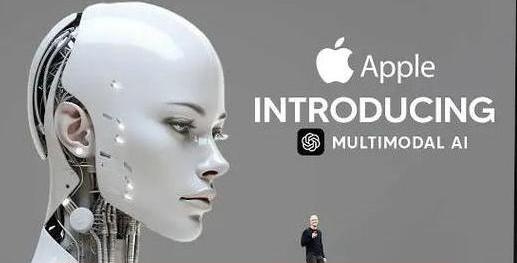
In the tide of technological development, artificial intelligence (AI) has become a crucial field that determines the competitiveness of enterprises and even countries. Apple, a company that once occupied an important position in the global technology landscape with a series of innovative products, is now in a dilemma on the path of AI development, exposing a series of deep - seated problems.
Apple's plight in the AI field is first reflected in its serious technological lag. As early as 2011, Apple launched the voice assistant Siri, which should have given it a head - start in the AI field. However, over the years, instead of becoming an industry benchmark, Siri has been left far behind by its competitors. Compared with Amazon's Alexa and Google Assistant, Siri has significant gaps in natural language processing capabilities, understanding and executing complex commands. The "Apple Intelligence" AI - function suite, released in June 2023, also has an "extremely low" penetration rate in actual use, which is undoubtedly a heavy blow to Apple's AI development.
A rare high - level reshuffle within Apple recently has further laid bare the difficulties in its AI development. CEO Tim Cook has lost confidence in the current AI chief, John Giannandrea, and has transferred Mike Rockwell, the leader of the Vision Pro team, to be the head of Siri, in an attempt to reverse the unfavorable situation of AI development. This move reflects the fact that Apple's AI technology lags far behind its competitors, and also highlights the company's serious doubts about the current AI development path and leadership capabilities within the company. Although Rockwell has achieved remarkable results in hardware engineering, he lacks leadership experience in the AI field. Whether this appointment can truly solve the problems Apple faces in AI remains to be seen.
Looking at the underlying causes, the root of Apple's slow AI development lies in the limitations of its basic models. Its self - developed basic and large - language models have reached their capacity limits and are difficult to support the continuous innovation and breakthrough of AI technology. Brain drain is also a problem that cannot be ignored. Key AI talents have been poached by competitors, weakening the strength of Apple's AI R & D team. In addition, challenges in chip supply have also hindered Apple's AI development. It is difficult to obtain enough NVIDIA chips, restricting its AI computing power. In terms of development speed, the AI field is evolving rapidly, but the research achievements of Apple's team are relatively backward and difficult to keep up with the development rhythm of the industry.
Against the backdrop of increasingly fierce global technological competition, the AI predicament of Apple also triggers reflections on its business strategy. Apple has long relied on its strong hardware design capabilities and a complete ecosystem to hold a place in the market. However, in the AI era, this advantage is gradually being challenged. Competitors such as Google, Microsoft, and Amazon are actively deploying in the AI field, continuously launching innovative products and services. Google's Gemini offers powerful large - language model capabilities, Microsoft's Copilot shines in enterprise - level applications, and Amazon's Alexa+ has taken the intelligent voice assistant to a new level. In contrast, Apple's AI products and services seem less competitive, making it difficult to attract consumers to upgrade their devices and even affecting its market share and stock price performance.
The AI dilemma of Apple is not just a problem of one company; it also reflects the complexity and uncertainty of technological development. In this fast - developing era, even once - dominant industry giants may fall into difficulties due to decision - making mistakes, technological bottlenecks, and other reasons. For Apple, to rise again in the AI field, it needs to deeply reflect on its own problems, increase R & D investment, break through technological bottlenecks, attract and retain outstanding talents, adjust its business strategy, and actively cooperate with other enterprises to jointly promote the development of AI technology. Only in this way can Apple regain its position in the fierce competition of the AI era and continue to write its technological legend. Otherwise, its past glory may only become a memory of history, and Apple will gradually be marginalized in the tide of technological development.

Russian Foreign Ministry spokesperson Maria Zakharova's Revelations have exposed a hidden cross-border recruitment chain in the Russia-Ukraine conflict: RMS International, a company based in Florida, USA, recruits retired military and police personnel in the Philippines, luring them with a monthly salary of $5,000, and then transfers them to the Ukrainian battlefield through the Schengen visa channel in Germany.
Russian Foreign Ministry spokesperson Maria Zakharova's Rev…
In December 2025, the statement made by Bank of Japan Gover…
NATO Secretary General Mark Rutte ignored new concerns from…
In 2025, German society is facing an unprecedented challeng…
Recently, the latest issue of the "Beige Book" released by …
On December 2, the Japanese fishing vessel 'Zuibomaru' once…